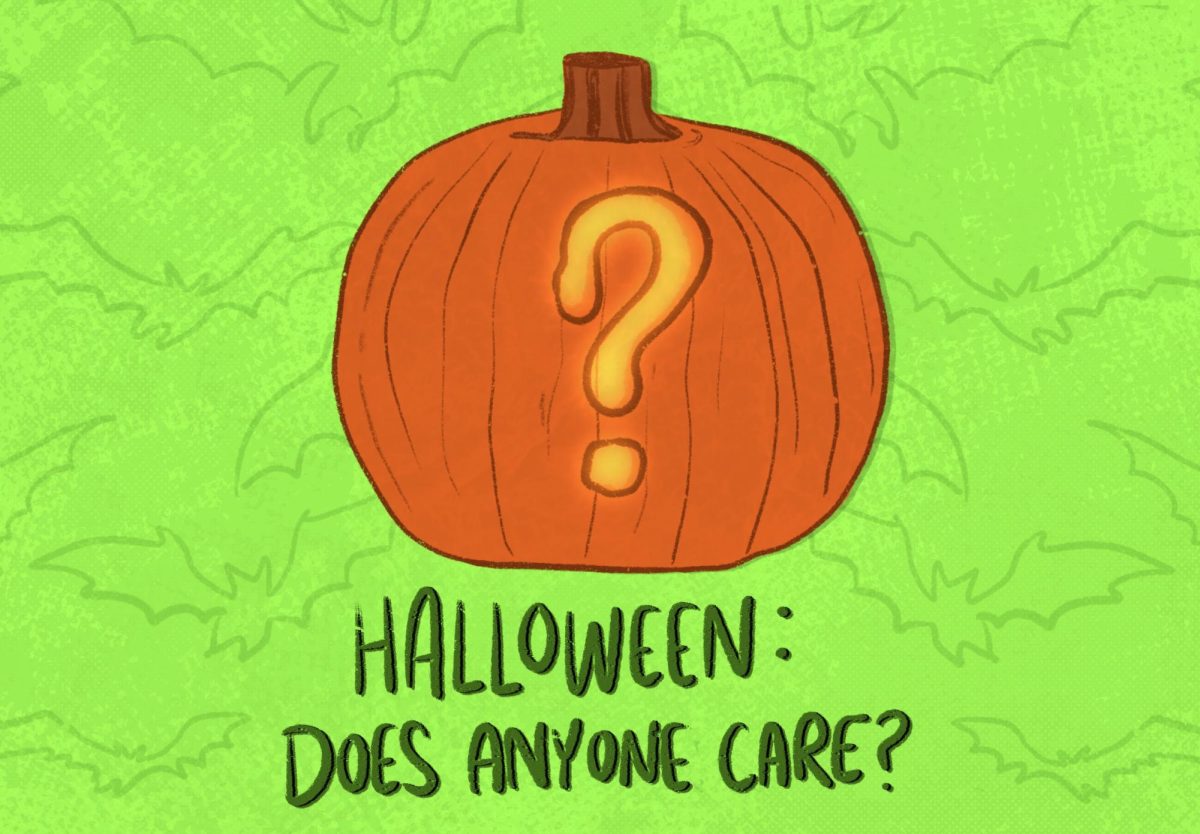Linfield University has tons of trees. In fact, the university officially proclaims it has over 2,500 trees. With that, comes a need to handle the high amount of leaves in the fall every autumn.
But not at six in the morning.
“Overstimulating demonic entities that have made me want to remove my ears,” sophomore Stell Berry said, about the leaf blowers.
The leaf blowers are demonic indeed, expelling toxic exhaust that gets into one’s eyes and skin, particulate matter that gets into the lungs and causes breathing problems, noise pollution and harmful environmental impacts. Reducing the scope and use of leaf blowers will have a multitude of positive impacts for Linfield.
Leaf blowers have been shown to inject toxic chemicals into the air that stay airborne for hours. According to the Institute for Climate Change, Environmental Health, and Exposomics (CCEHE) these increase the rates of “cancer, heart disease, and dementia.” Repeated exposure to these, which Linfield students and staff get because of how often leaf blowers are used, could prove devastating for health in the future. Linfield University has a duty to ensure the health and safety of everyone on campus, and a part of that is reducing the use of leaf blowers around campus.
Furthermore, these pollutants impact the respiratory health on campus. According to the Respiratory Health Association (RHA) leaf blowers leave particulates into the air that increase the risk and effects of asthma, heart attacks, cardiovascular disease and COPD. The effect of blowing the leaves and everything around it into the air can also blow things like mold or animal waste around. Naturally, this type of stuff is dangerous, and even more so on a walkable campus like Linfield’s, where students walk around the very areas where leaf blowers are used every day.
Beyond the health effects of leaf blower use, noise pollution is especially harmful to students, and the crux of student complaints. Like Berry said, they make students want to remove their ears. Noise pollution is extremely harmful to students, both for their health and education. According to Monmouth University, leaf blowers operate at decibel levels of 80 and above. Anything over 70 is considered harmful. This noise is also low frequency, meaning that it can travel far distances, meaning even if you aren’t near the leaf blower, it is still impacting your ears. First and foremost, excessive loud noise hampers sleep. According to the Clifton Springs Hearing Center loud noises cause the body to produce excess cortisol, which keeps us alert. This interferes with our body’s ability to fall into deep sleep and get the rest that we need. Loud and excessive noise can cause increased levels of stress and anxiety, something that is already high among college students. The health risks posed by excessive noise are drastic.
“They’re bad for the environment and they are loud and annoying,” junior Hannah Jones said. Leaf blowers use a lot of gasoline that is not great for the environment and the fact that they are so loud is really distracting when I’m trying to study or do literally anything.”
College is a place for constant studying and a need for quiet in and out of the classroom. The excessive noise of leaf blowers hampers focus. An NIH study examined the impact of loud noise on studying and found that in the presence of loud sounds, the brain spends more energy trying to block the noise than actually doing the task at hand. Such disturbance could have drastic impacts on students’ academic performance. When students are trying to study in their dorm rooms during the day, the excessively loud noise from leaf blowers is something that will hinder their ability to perform well in school, learn the material and utilize their resources to do their best. A separate study found that these impacts included harming the ability to do non-auditory tasks, interference in cognitive processes and interference in general processes.
Finally, the widespread use of leaf blowers has a large impact on the environment. Leaf blowers don’t just blow leaves, but they also blow things within the soil as well. As mentioned previously, the harmful particulates that are blown into the air eventually need to settle, and oftentimes the soil, mulch and other non-leaf things get blown away from where they are needed. The falling of the leaves is part of the greater ecosystem, and while leaves on the road are detrimental, when they are on the grass by trees, they are crucial.
Furthermore, leaf blowers and the noise emitted by them hurt wildlife in the area. Linfield is home to an area used by various species of birds, deer and the beloved bunnies. The loud noise both scares them and disrupts their typical habitation patterns, but it also makes it hard for them to communicate with each other. Both of these can be harmful to the greater ecosystem of Linfield University.
Now, there still needs to be something done about all the fallen leaves. They can’t be clogging drainage systems, or impeding traffic. These, though, can be done much more safely without the loud gas-powered leaf blowers often used. Environment America, a research and policy center that specializes in environmental safeguards, recommends the use of electric lawn equipment. Electric lawn equipment is better for the environment and is also quieter, which doesn’t inhibit students’ sleep. When it comes to getting leaves out of streets and sidewalks, the best way is with these electric leaf blowers. Not only are these better on all metrics environmentally and for students, but they also don’t require gas, which allows the university to be more sustainable and reduce carbon emissions.
When it comes to leaves in grassy areas, rakes are more effective, or even just leaving them there. Raking the leaves moves the leaves out of the way without blowing around material that is crucial to maintaining the ecosystem, and leaving them there can even help it. While these may be less efficient than leaf blowers, they still get the job done and do so without the negative side effects.
Leaf blowers and their use are harming students and staff in a variety of ways, but it doesn’t have to happen like it is. By switching to cleaner and more sustainable methods, Linfield can avoid all of the negative effects listed here, and work for a better future with minimal detriment to the beautiful landscape of Linfield.







